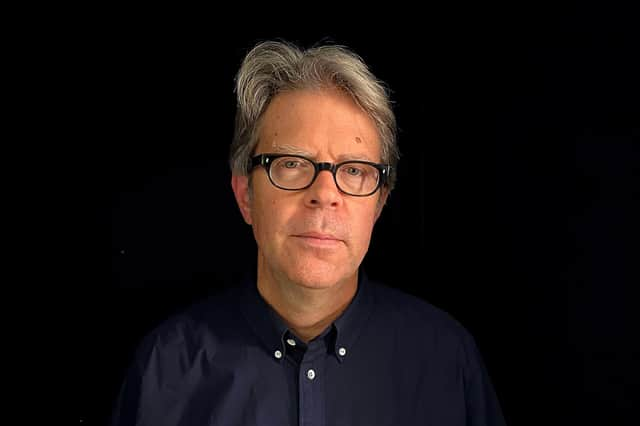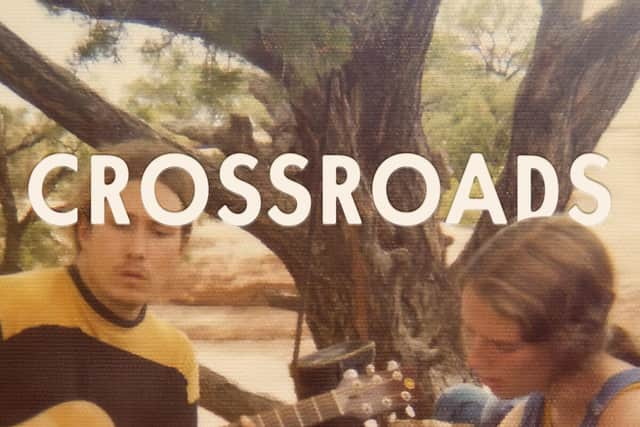Book review: Crossroads, by Jonathan Franzen


It seems ironically appropriate to begin this review with a confession. I liked very much Franzen’s first two novels, The Twenty-Seventh City and Strong Motion. As for The Corrections, the novel where he swerved away from challenging and experimental to social realism of the most middlebrow kind, I was left, like the Laodiceans, lukewarm. A writer whom I thought was going to be interesting turned coat and capitulated to “what I think the public want”. Worse, he wrote an essay, “Mr Difficult” about the brilliant William Gaddis justifying taking the king’s shilling: the avant-garde doesn’t pay the bills and it’s just so difficult, so let’s all coorie doon in a comfortable tale of social manners, contemporary morals and family dynamics.
It is appropriate to mention this as part of Crossroads involves a Christian youth group who have to be utterly and unforgivingly honest with each other in group work. It is a neat conceit for having characters reveal their thoughts about themselves and the other part of the “dyad”, a swooping lens over interior monologue and external confrontation. What are my barriers? What do I like about you? What have you done that made you feel ashamed?
Advertisement
Hide AdThe crossroads of the story is typically literal and metaphorical. It is the youth group in the (of course, suburban) church where associate pastor Russ Hildebrant and the charismatic youth leader of the Crossroads group, Rick Ambrose, are locked in a stand-off of mutual antipathy after an incident. It is also that all the characters have reached crossroads in their lives. Russ is desperately wanting an affair, his wife resents him enough to be in therapy, their eldest son is thinking of leaving college to make the moral choice about taking the draft, their second son is dealing drugs and is unconvincingly clever and their daughter, the prom queen to be, is doubting that popularity is really the goal that she thought it was.


In many ways, this seems like self-plagiarism – The Corrections was similarly set in the run-up to Christmas, and here the first section is entitled “Advent”. Another dysfunctional family, another set of moral-esque dilemmas. You can throw into the Christmas pudding all the contemporary goodies, despite this being set in the 1970s. It has explanatory moments about feminism, black rights, the Navajo, homosexuality, loneliness, the environment, counter-culture, being silenced, being unable to speak out: it is as if there were a tick box of “concerns”. One character opines “It’s not just about the labels, though, right? It’s about developing an audience”. Having his first spliff one character thinks “It came to him that all white people were frauds, a race of parasitic wraith-people, and none so more than he”. I’ve said it before and I will say it again; every book has its own guilty conscience. In a book about guilty consciences this is perfectly evident.
It is not a book that I resented reading – it passed the time adequately. There is an interesting idea about goodness in it. Is it a question of moral choice? Is it “to thine own self be true”? The big sister has an epiphany that “she’d caught a glimpse of the unqualified worth of every human being”, another realises “she liked him for his goodness, it was the best thing he had going for him, and by definition goodness meant not having her”. Perry, the dope-head genius, ponders whether there is any possibility of a truly altruistic act, because being selfless usually means feeling better about yourself. All this is interesting, in a way that Iris Murdoch made such questions almost dangerous. Here, there is a candy-coating.
Although I said it was Jonathan Franzen self-consciously writing a Jonathan Franzen novel, that is not wholly true. I think it is Jonathan Franzen trying to write a Marilynne Robinson novel. Robinson is the most theologically sophisticated and subtle writer of our times. Franzen spells out the difference between a Mennonite and an Anabaptist. Robinson deals with errant children, quivering faith and quiet redemptions; Franzen has kids going off the rails, adultery and compromise.
In some ways the book is more than one book. Both Russ and his wife Marion get the equivalent of inset novellas, which do complement each other. The same incident is often seen from alternative perspectives, done with some deftness. This is apparently the first volume of a trilogy, A Key To All Mythologies, which most people will recognise as a nod to Casaubon’s failed project in George Eliot’s Middlemarch. Is this a similarly failed and flawed project? It ends with various narratives in limbo. Will the next books continue the story of the Hildebradts into the 80s, the 90s, the 00s, the Pandemic? Time, I suppose, will tell.
Yet there are moments of very astute and fine writing in this. Some scenes will stay with me, and some resonate. The depictions of drug use, depression, moral laxity, moral abyss are all done with earnest feeling. It opens with “the sky broken by the bare oaks and elms of New Prospect” (note the metaphor in the town’s name) which harks back to Pynchon’s opening of Gravity’s Rainbow – “a screaming came across the sky”. Franzen aches to be profound, but ends up a vox-pop. He wants to be a serious novelist, but is more of a social commentator. Not a prophet, instead a curtain twitcher on goings-on and of passable interest.
Crossroads, by Jonathan Franzen, Fourth Estate, £20
A message from the Editor:
Advertisement
Hide AdThank you for reading this article. We're more reliant on your support than ever as the shift in consumer habits brought about by coronavirus impacts our advertisers.
If you haven't already, please consider supporting our trusted, fact-checked journalism by taking out a digital subscription at https://www.scotsman.com/subscriptions